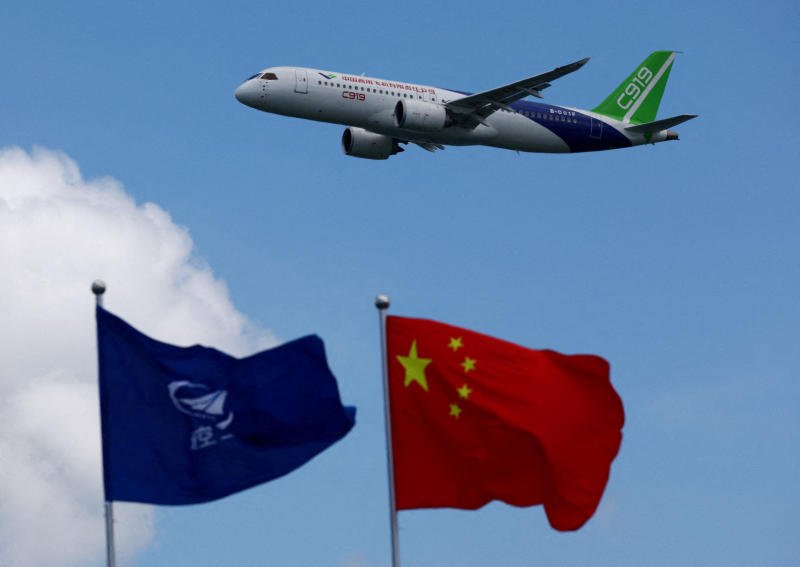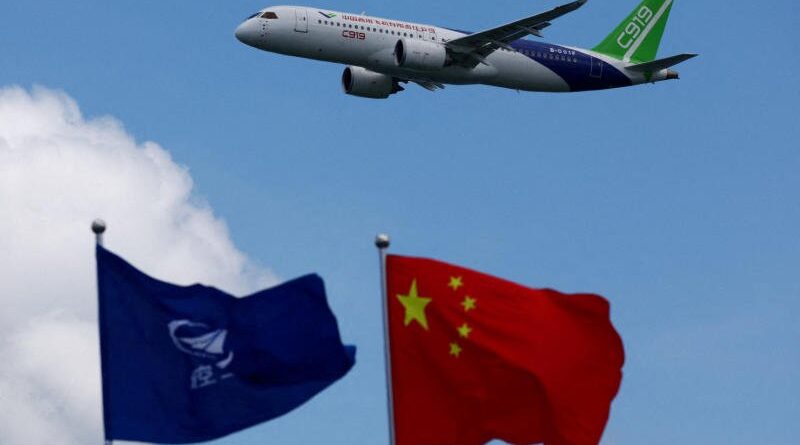In an international win for China’s C919, Brunei accepts Beijing’s aviation rules

Brunei has officially adopted China’s civil aviation certification standards, easing access for Chinese-built aircraft such as the narrowbody C919 jet into the wealthy Southeast Asian market while serving as a potential model for how the planes could expand their international reach.
Brunei accepted the airworthiness code of the Civil Aviation Administration of China earlier this month, the Chinese embassy in Brunei said on Monday on its website, citing the equatorial country’s Department of Civil Aviation.
Previously, Brunei had recognised only aircraft certificates issued by the European Aviation Safety Agency, the US Federal Aviation Administration and Transport Canada Civil Aviation, the embassy said.
“Through this revision, Brunei becomes another country to explicitly recognise China’s standards on large aircraft,” the embassy said.
The Commercial Aircraft Corporation of China (Comac) is trying to expand its market for the C919 – China’s first domestically made narrowbody aircraft – overseas and challenge the duopoly of Airbus and Boeing. Comac has already secured orders for hundreds of C919 units from Chinese airlines.
Brunei’s adoption of the Chinese standards follows a US$2 billion order by start-up carrier GallopAir in 2023 for 30 Comac aircraft, including the smaller C909 regional jet formerly known as the ARJ21.
On its website, the Brunei-based airline called the order Comac’s largest international sale, and likely the first overseas C919 purchase. The airline has a seven-year plan to connect four countries in Southeast Asia with China.
Tony Fernandes, CEO of Malaysian carrier AirAsia, also said the airline was in “active discussions” to place an order with Comac during the Belt and Road Summit in Hong Kong last month.
Brunei’s recognition of the Chinese airworthiness codes marks one step in a longer approval process for Comac planes, said YK Leung, managing director of Hong Kong-based Linken Capital Aviation Services. He said the C919 would need separate “validation” from Brunei to operate there.
Brunei, despite its wealth from oil and gas, has a population of just 462,000 and no domestic flights, only international routes. This means that the C919 would need not only validation from Brunei, but also air-service agreements from the destination countries, Leung said.
Agreements related to scheduled and charter flights depend partly on the airworthiness of an aircraft type, he said.
While Leung said he did not think getting air-service agreements around Southeast Asia would be difficult, he added other countries must determine whether evaluating the planes is worth the time and cost.
“Brunei is a small user, so it will take a while,” said Ibrahim Suffian, programme director with the Merdeka Centre polling group in Malaysia. Comac would need to train local engineers and maintenance staff to supplement the many who already service Airbus and Boeing jets, he said.
Based on its specifications, the C919 is most directly comparable to the Airbus A320 and Boeing 737 families of aircraft and largely matches those airliners on maximum flight distances and passenger loads.
But the competition will be stiff, Suffian said.
“It’s quite ingrained – the use of Western aircraft. It’s just tradition. The supply chains have been built around Western aircraft.”
Source – Bangkok News




